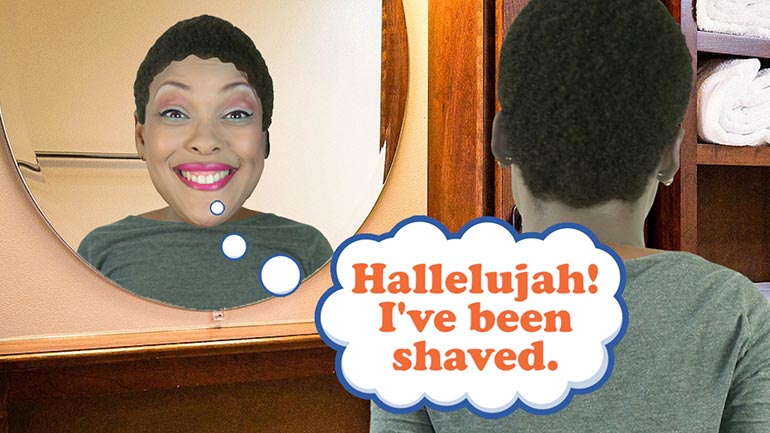ShmoopTube
Where Monty Python meets your 10th grade teacher.
Search Thousands of Shmoop Videos
Social Studies 4: Local Institutions 8 Views
Share It!
Description:
Today we're learning all about local institutions. You know, important stuff like public libraries. Or even more important, public restrooms.
Transcript
- 00:04
[Coop and Dino singing]
- 00:13
Every community is supported by its institutions. [Statue holding up community of Earth]
- 00:16
Geesh…we hope they've been lifting weights.
- 00:19
Sounds tiring.
- 00:20
Anyway, these institutions can be divided into two kinds.
Full Transcript
- 00:23
First, there are national institutions, which are the same in every community and they're
- 00:28
paid for at the national level.
- 00:29
And then there are local institutions that are unique to each community. [Man walks up to woman receptionist]
- 00:33
They're paid for at the local level.
- 00:35
No surprises there!
- 00:37
So…what do these institution do?
- 00:39
Well, whether they’re national or local, all institutions do the same thing.
- 00:43
They provide goods and services to the people in a community.
- 00:46
Y'know…when they're not busy bench-pressing an entire community. [Uncle Sam bench pressing]
- 00:50
Anyhoo, some of these goods and services are public, meaning they’re available to anybody
- 00:55
who lives in a community…
- 00:56
These are things like libraries, and community centers! [Examples of local communities]
- 01:00
Other goods and services are private, meaning They're only available to paying customers.
- 01:04
…What?
- 01:05
We gotta eat.
- 01:06
Anyway… institutions can also be compared based on their ownership.
- 01:09
Some of them might be independently owned, and some might be publicly-traded. [Girl walking a dog and group of firemen with a dog]
- 01:13
Whoa, whoa, whoa, independently whozits and publicly whatzits?
- 01:17
Something tell us it's example time!
- 01:20
How do we know?
- 01:21
Because those are phrases we don't hear every day.
- 01:23
Or…even every year. [Person turns page of book]
- 01:24
So let's look at independently owned first..
- 01:27
Here’s your brother’s new car. [Brother stood with new car]
- 01:29
He bought it himself, with his own money that he saved up over the years.
- 01:33
That means no matter how much you beg him, if he doesn’t want to drive you and your
- 01:36
friends to the water park, he doesn’t have to. [Brother drives away from young brother]
- 01:39
See, because your brother’s car is independently owned, he gets to decide – independent of
- 01:44
you – how the car is used. [Brother drives car off a canyon]
- 01:46
OK, so what about a publicly traded institution?
- 01:49
That’s an organization that's traded through shares sold on the stock market.
- 01:52
So back to our example…
- 01:54
Here’s the family car that your parents let your brother use. [Brother stood with family car]
- 01:57
But it’s not technically his because your folks bought it, and pay for the gas and insurance.
- 02:02
For all intents and purposes, the car is now publicly traded.
- 02:06
That means your brother has to listen to the car’s shareholders – in this case your [Brother holding car keys and Dad kicks keys out of his hand]
- 02:10
parents – when it comes to making decisions about how the car gets used.
- 02:14
A publicly traded institution is also required to share important information about itself
- 02:19
with the general public.
- 02:20
Yep, all information.
- 02:22
That means the good and the bad. [Family assessing shareholder information]
- 02:25
Walmart is an example of a public institution.
- 02:28
It’s owned by lots of people through trading on the stock market.
- 02:31
And, like a lot of public institutions, there’s Walmarts in lots of communities.
- 02:35
Wowzers.
- 02:36
That’s a lot of $2 t-shirts... [Walmart t-shirts]
- 02:38
Meanwhile, your local party supply store may be an independent institution --
- 02:41
-- possibly owned by the guy whose name is on the store.
- 02:44
But let's be honest…with a name like Bongo, this guy was destined to own a party supply [Bongo a clown in a party supply store]
- 02:48
store.
- 02:49
Of course, just because a company is independently-owned doesn’t mean it’s small – [Independently owned dog dragging boy]
- 02:53
or even local.
- 02:54
Take Mars, Incorporated, producer of some of your – and your pet’s – favorite
- 02:58
treats.
- 02:59
Actually, while you can take all the Mars candy [Young boy eating candy bars]
- 03:01
you want until you get a stomach ache, you technically can’t take any part of the Mars
- 03:06
corporation.
- 03:07
That’s because Mars, Inc. is a privately owned
- 03:11
institution, controlled exclusively by the Mars family. [Alien family controlling the Mars factory]
- 03:14
And they don’t let anyone come “be-TWIX-t” them and their company…
- 03:19
And that's it! Institutions aren't so bad.
- 03:21
And who knows? [Walmart truck picks up boy to take him to water park]
- 03:22
Maybe Walmart will drive you to the water park!
Up Next
Sticks and stones, right? Well...only sometimes. It's a good idea to make sure your words aren't going to hurt others. Let's look at some ways to d...
Related Videos
Learn to debate like a champ. It's way better than debating like a chimp. That just takes mudslinging to a whole new level.
Today we'll learn about biographies and autobiographies. And no, the second one has nothing to do with the lives of cars.
In this lesson we'll subject you to some verbs and predicates. Each one is a necessary part of a complete breakfas—er...sentence.
Choosing words carefully is important. You may end up vexing the assemblage of citizens you're conversing with...or you might even just plain bore...




